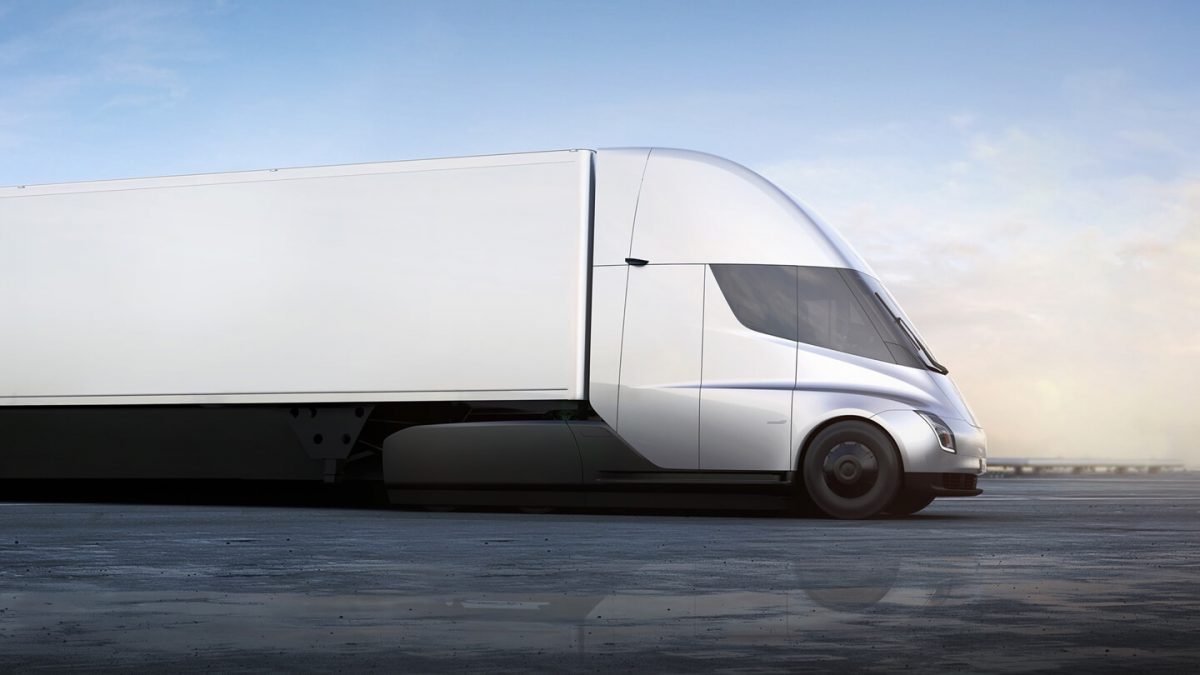
📷: Tesla
The logistics industry has entered a new era. Consumers expect to receive goods within as little as one day and technology has rapidly developed to meet their demands. We’ve heard much about drones and robots, but even traditional transportation is changing – and it’s happening fast.
With people-centric logistics serving as the integral mode of delivery that takes goods from start to finish, commercial trucking is getting smarter. New smart semi truck solutions are positioned to be cost-effective, offering a slew of benefits. By upgrading semi trucks, logistics companies can save fuel, increase safety and optimize routes like never before.
The digitization of semi trucks will allow transportation to supplement the demand for fast service and other core requirements in the coming years, according to Freight Waves.
“Digitization is changing the very foundation of trucking. It is creating the most tectonic changes in the way stakeholders derive and deliver value in this industry. As a simple example, digitization is changing the way shippers and carriers interact thereby creating a new business model where on-demand freight mobility is now enabled by digital freight brokering (some like to call this business model: Uber for trucks)”.1
“This interaction between shipper and carrier is the most important upstream interaction that sets into motion several downstream implications such as equipment choice, driver choice, service and maintenance activities, freight and fuel efficiency improvements, etc. By some estimates this market will reach revenues of nearly $60 Billion by 2025”.1
We took a look at the latest in smart semi trucks news to show how they might meet the demands of the modern supply chain.
TESLA’S DIGITIZED SEMI TRUCK
Tesla isn’t the first automotive brand to bring smart semi trucks to the test. But according to the electric car mogul, the famous brand is taking commercial trucks to the next level. Slated to move into production this year, Tesla’s commercial semi truck embraces digitization. According to Entrepreneur, two of its main selling points are its speed and fuel savings.
For starters, “The truck can gain 400 miles of range with just a 30-minute charge from a ‘megacharger,’ and its operating cost per mile is 20 percent below that of conventional diesel semi trucks”.2
Beyond this, the digitized Tesla offers other benefits that may be deemed as priceless to forward thinking logistics leaders.
“Tesla claims its new vehicle will improve logistics safety, boost efficiency and reduce costs. Without a trailer, the Tesla Semi — powered by four electric motors — can reach 60 mph in five seconds, compared with 15 seconds in a comparable diesel truck. With a full 80,000-pound load, that feat can be achieved in 20 seconds, versus about 60 seconds in a diesel truck, according to Tesla”..2
Of course, Tesla’s inherent advantage is in the benefits to the environment for green-conscious companies. This advantage may be difficult to ignore, given today’s bleak climate statistics. Today, “Around the world, these trucks account for 7 percent of greenhouse gas emissions and guzzle 17 million barrels of oil per day, with demand growing by 1.9 percent per year, according to the International Energy Agency”.2
PELOTON’S TRUCK CARAVAN TECHNOLOGY
Peloton designs automated platooning systems that link pairs of trucks with active safety systems. The system requires only a single driver (reducing payroll costs) and also helps to save fuel.
Studies by Peloton “showed that while traveling at 65 miles per hour 36 feet apart, two trucks packed together saved seven percent on fuel. This was the average for just two trucks (the lead saved 4.5 percent, and the rear saved 10 percent), so it should increase as trains get longer”.4
The one obvious concern of digitized systems such as Peloton’s is safety, according to Supply Chain 247.
“People are understandably concerned about the idea of computers driving cars around on the roads, and those worries are amplified for tractor-trailers that can weigh up to 80,000 pounds when fully loaded. But experts actually predict that automated systems will make trucking safer, by eliminating distracted driving and human error. And Google’s driverless cars, at least, have now gone more than 700,000 miles without an accident”.4
DAIMLER’S SELF-DRIVING TRUCKS
Over the past three years, Daimler, the world’s largest commercial vehicle manufacturer, has developed its self-driving semi truck prototype. When the truck comes to fruition, it should be the first of its kind in the world. Titled the Freightliner Cascadia, “Daimler says it’s ready to put the truck into production this summer and start delivering them to customers later this year”.5
Daimler says “The trucks are able to keep themselves centered in a lane, match the speed of a car in front from a safe distance, and alert the driver when cars or pedestrians sneak into the big blind spot on the right side of the vehicle”.5
____________________________
Tesla’s, Peloton’s, and Daimler’s technologies will improve over time, but until each has passed the test industry experts, critics will remain sceptical. In terms of keeping up with industry trends, these advancements will be the first of many steps in creating a new future for serving the supply chain with smart semi trucks.
Cited Works
-
“From Freight 2025: “Trucking Industry’s Transformation: Future Is Green, Safe, Connected…Smart.” Freight Waves. April 07, 2019. Accessed June 20, 2019. https://www.freightwaves.com/news/thought-leadership/trucking-industrys-transformation-future.
-
Irfan, Umair. “Tesla’s Electric Semi Truck: Elon Musk Unveils His New Freight Vehicle.” Vox. November 17, 2017. Accessed June 20, 2019. https://www.vox.com/2017/11/16/16665266/tesla-electric-truck-announced-self-driving-price.
-
Rheude, Jake. “Tesla’s New Semi Could Change Shipping As We Know It.” Entrepreneur. April 16, 2018. Accessed June 20, 2019. https://www.entrepreneur.com/article/310732.
-
Stromberg, Joseph. “Why Trucks Will Drive Themselves Before Cars Do – Supply Chain 24/7.” Supply Chain 24 7. Accessed June 20, 2019. https://www.supplychain247.com/article/why_trucks_will_drive_themselves_before_cars_do/KPMG.
-
O’Kane, Sean. “Riding in Daimler’s New Semi-autonomous Big Rig.” The Verge. January 09, 2019. Accessed June 20, 2019. https://www.theverge.com/2019/1/8/18174526/daimler-cascadia-self-driving-semi-truck-ces-2019.
